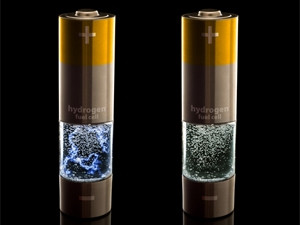
The Department of Science and Technology (DST) has outlined its intention to work alongside the private sector in alternative energy research.
It is set to launch a hydrogen fuel-cell-powered generator at the University of the Western Cape campus today.
According to the DST, the 2.5-kilowatt generator will be used at the Cape Flats Nature reserve on the campus and will free the grid to be used by other applications in the facility.
Hydrogen and fuel-cell technologies use both hydrogen and fuel cells to generate electricity, while hydrogen stores and delivers energy in usable form. In a short statement, the DST said using hydrogen can go a long way in reducing SA's dependence on imported oil, as well as bring down the country's greenhouse gas emissions.
"This initiative is part of the department's implementation of the National Hydrogen and Fuel Cell Technologies Research, Development and Innovation Strategy (HySA), which aims to use local resources and existing knowledge to enable the development of high-value commercial activities in hydrogen and fuel-cell technologies.
Expensive production
Hydrogen fuel cells have been traditionally expensive to produce due to the platinum used as a catalyst in the process.
The DST's HySA strategy aims for improved renewable energy sources in the long-term and wants to leverage fuel cell technology as it is "more efficient, reliable, quieter and compact, and if the hydrogen used is from a renewable source, this technology is also cleaner and better for the environment".
The department highlighted the following five key milestones to improve upon in the years building up to 2018:
* The farmer to pharma value chain to strengthen the bio-economy
* Space science and technology
* Energy security
* Global-change science with a focus on climate change
* Human and social dynamics
Share